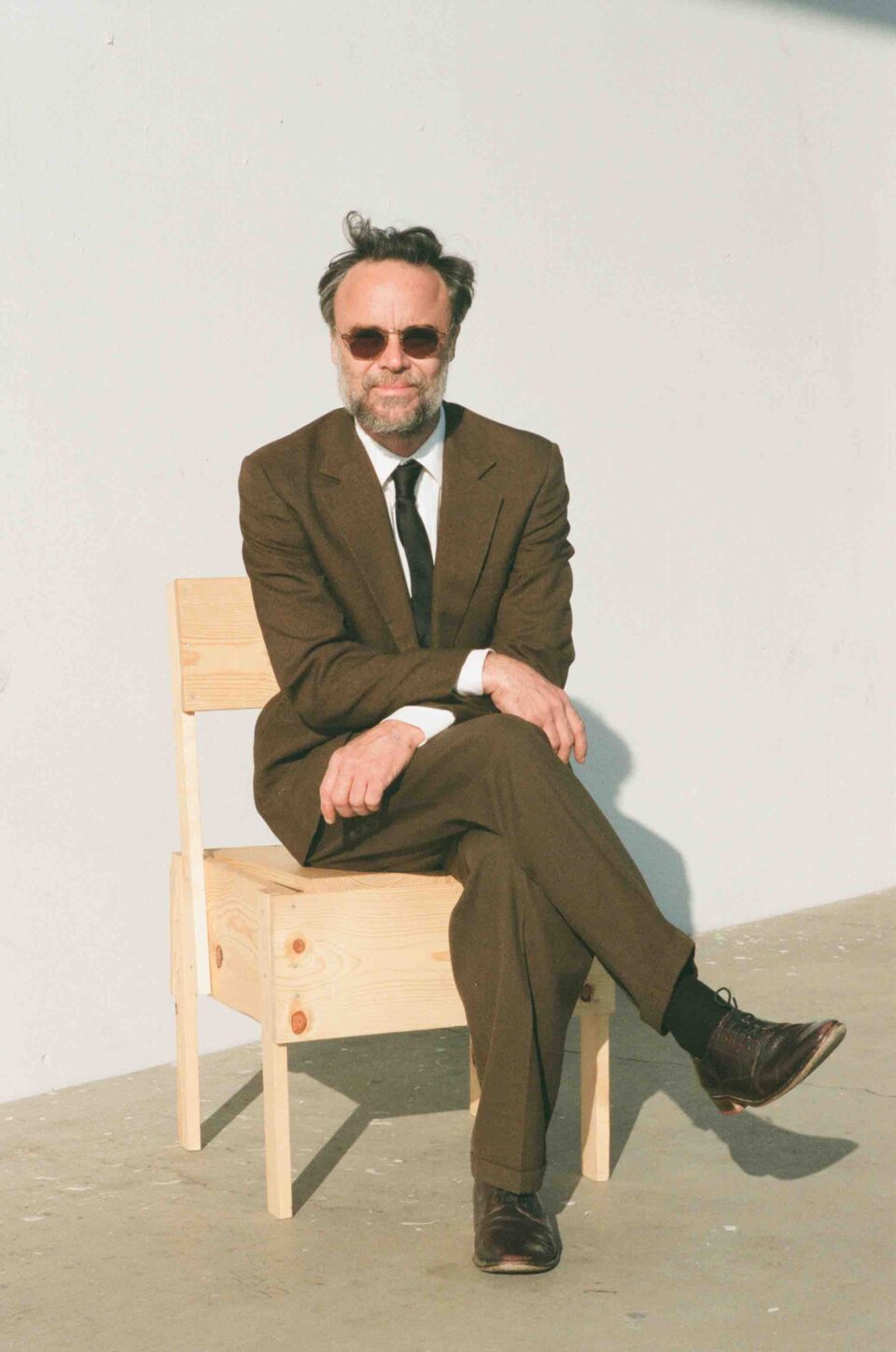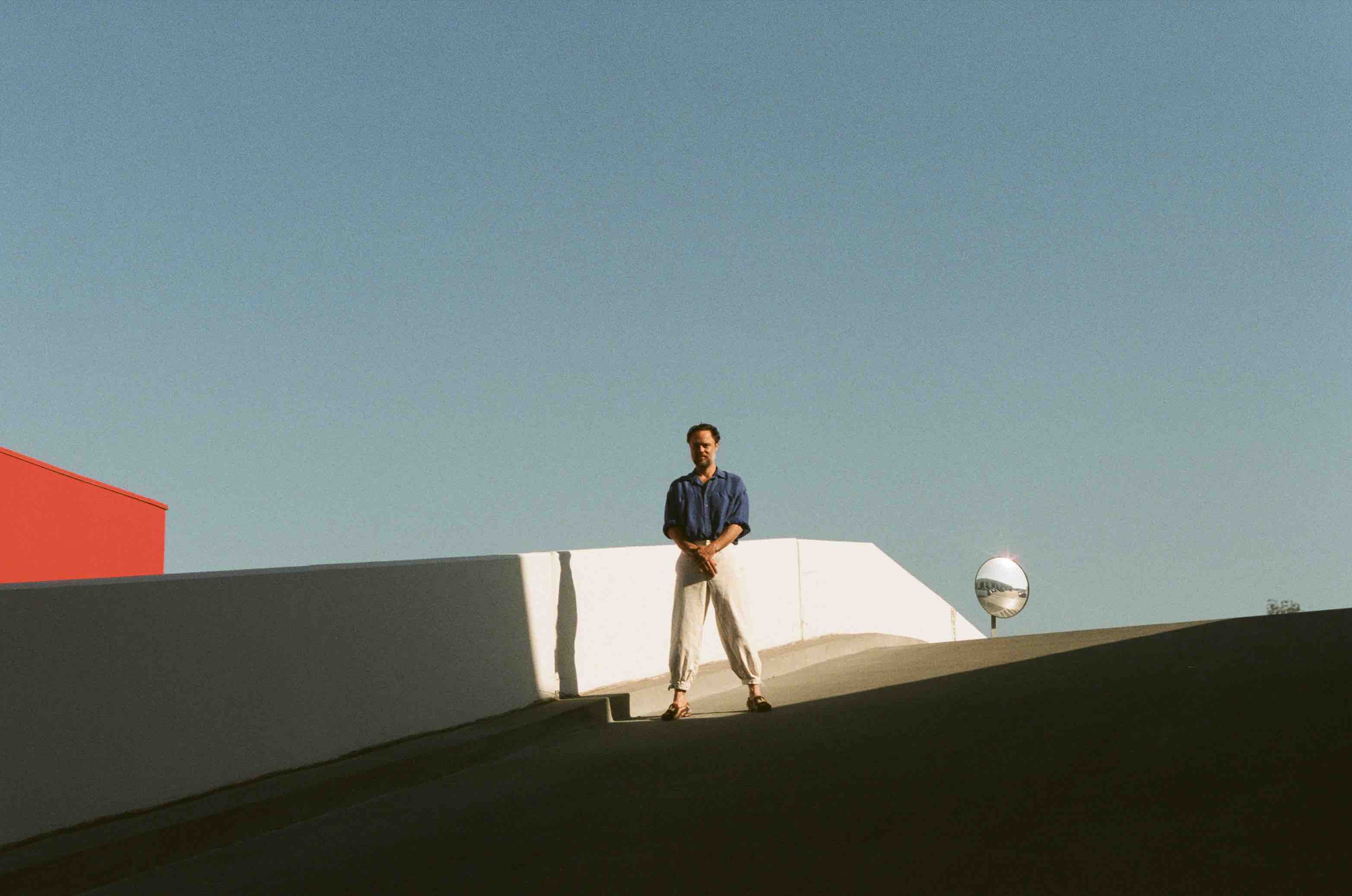Though born in Brazil and currently living in Brooklyn, literarily lyrical and adventurously emotional vocalist, composer, multi-instrumentalist, and actor Rodrigo Amarante surely left his heart in Los Angeles—his longtime home, close to the grit of Downtown. No matter where Amarante lives now, he’s never far from LA, as a sense of home permeates everything he does.
Beloved for his roles within ensembles such as Los Hermanos, Orquestra Imperial, and Little Joy, it’s Amarante’s solo work that’s most vividly intriguing and imagistic. Beginning with Cavalo in late 2013, touching on the bolero-based sound of “Tuyo” on his theme song for Netflix’s Narcos and Narcos: Mexico, then pivoting into the neorealism of 2021’s Drama, every sonic portrait that Amarante paints feels deeply lived in and woozily warm.
Before returning to Downtown Los Angeles for his Walt Disney Concert Hall set with the equally picturesque Helado Negro on Friday, April 21, we spoke to Amarante about writing to a sense of place on his last album, as well as some of his favorite spaces to dwell within the City of Angels.
On Drama, there’s a song called “Sky Beneath,” which sounds as if it’s in tune with a specific location without spelling anything out. Am I nuts?
I’m flattered that “Sky Beneath” does that. I’m curious about how, though—you tell me [laughs]. I had been living in Los Angeles when I wrote that, longer than I lived anywhere in my lifetime—and I didn’t realize it at the time. That says something about that city. Los Angeles was always meant to be temporary. But it was a decade into being there when I wrote that song.
The West Coast, Los Angeles, this resonates with me as a port town. It’s the end of the world, literally, when it comes to America, that far away place where you go to find gold. A fresh territory where one can be someone new. It was a new beginning for me. I went for work and wound up staying. I was in my early thirties already when I got there, working with music for a long time. And no one knew me in LA when I got there. It was painful, but there were wonderful things that came from that pain.
“Los Angeles resonates with me as a port town. It’s the end of the world, literally, when it comes to America, that far away place where you go to find gold.”
What did you first fall in love with to want to stay in Los Angeles?
At first it was the sense of “oh wow,” because I wasn’t in music, I wanted to be a filmmaker. But when somebody asked me to join a band, I joined a band. Then I figured I might as well write a song, since I’m in a band. From there, I had a big band that played London’s Barbican Centre, which is where I met Devendra Banhart. He was the one who invited me to come to California first, to write and work there, to get out of my safe zone. That was exciting. And that was probably why I kept delaying going away from California
Because you were excited.
And then I fell in love. It’s like a new language—you only learn one when you’re in love, or you need to. Plus, I grew up surfing, so the city offered me great surfing and a great surfing community. I made records with friends from New York and LA. Got married. Got divorced. No regrets.
Is there a specific place in Los Angeles that connects you to where—or how—you grew up in Brazil?
Not really. Los Angeles is different than Rio. And I’m not in the world looking for Brazil. I’m fascinated looking for and at everything else, all of the other cultures. I learned to appreciate the others while in LA. There, I was never so close to other people from other parts of the world. Besides, I can always get on a plane and fly to Brazil. I’m not stuck here.

“I’m not in the world looking for Brazil. I’m fascinated looking for and at everything else, all of the other cultures. I learned to appreciate the others while in LA.”
What was your first work room in LA?
My first room where I could work in LA was in the Arts District on Palmetto Street. That space was such a wonderful time for me. Like 2012, or earlier. Everything was possible. There were these industrial buildings down there that people shared—it was remarkably cheap to live. There was nothing around. And the thing that was truly “LA” about that street was the architecture—there were no tall buildings around. During pilot season, the studios used that block for every different vibe; one day it was a street in Dublin, on another it would be Chicago. Studio shoots always happened there, and we used to get paid to not go through the front while they were filming. That street just felt like home to me, though it looked nothing like the street where I grew up. This LA street was lovely and transient.
Is there a music room in Los Angeles where you’re most comfortable hanging out?
I’m thinking about Zebulon, because it was my bar in the sense that I knew the guy who opened it. They used to invite me in before they opened, and I understood immediately that these people were music lovers. The space celebrates music for really open-minded people. And I lived around the corner, so I loved being able to go there without knowing who was playing or what was happening. I was surprised by what happened every time out, and that space became a real hub for musicians, writers, artists, and kids. I loved seeing the kids come in—the success of the bar.
“Being a foreigner is an invitation to turning a handicap into a superpower. I learn through that, those differences, so any time I have an opportunity to do that is lovely.”
Dining in Los Angeles—that’s a far different experience than where you are in Brooklyn.
I’ve been away from Los Angeles for almost a year, and I can give you one very LA thing: what I’m missing is Leo’s Tacos on Eagle Rock Boulevard.
Best al pastor.
That stuff doesn’t exist in New York. And I’m a cook, so I know what I’m talking about. The salsa is different. The way they make the rice is different. I miss that so much. Also, there is Hama Sushi on 2nd Street, Downtown, on the other side of the spectrum.
Talking about your cooking skills, I know you worked with the Hollywood Food Coalition during the pandemic. What is your recollection of that moment in Los Angeles, drawing you to that space and that activity?
Will Lemon, an artist and a good friend who I met through Devendra, is the head chef there, and asked if I would want to come cook. We’ve cooked together many times, like friends who cook do—and that is very LA, that dinner party thing. I was particularly touched by his offer, because I’ve had a relationship with homeless people and poor people who live on the street. Being a kid from Brazil, I saw that all the time, and never thought that I would ever see that in LA so drastically.
For a while after that studio on Palmetto Street, I had another studio on Wall Street—Skid Row, really. It was harrowing, living in paradise and seeing this. To walk through Skid Row can mean becoming numb to it, and so I wanted to avoid that. Some of my early songs have characters who are homeless. Having him ask me to come cook, prepare Sunday dinner for sometimes 250 people with food donated from bakeries and supermarkets, that was special. I really loved doing it—having some Fela Kuti on the boombox. Every time I walked out, I felt as if I’d gotten more than I was given. That was my church in LA.
Without laying religion on you, is there any place where you could most go within?
Being a foreigner is an invitation to turning a handicap into a superpower. I learn through that, those differences, so any time I have an opportunity to do that is lovely. In a more specific way, I’d say surfing in the ocean. El Porto early in the morning.
You’re coming back Downtown when you play the Walt Disney. Want to say something about where you might hang after the gig?
Oh my God, you bet I’ll stick around. I won’t advertise where [laughs], but I like going to Cole’s for a beer, the Varnish, Mignon, The Regent—Downtown is my zone. Los Angeles is my zone. FL









